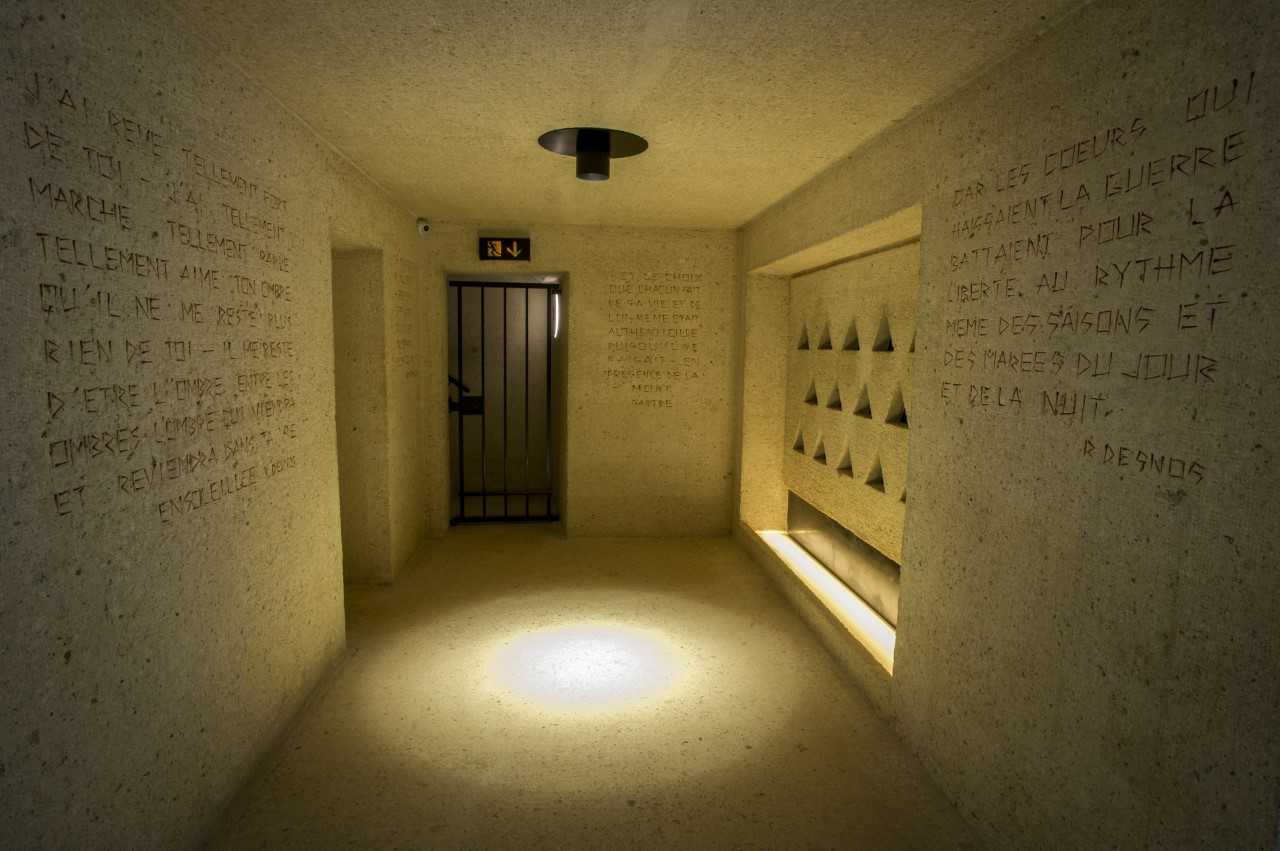Memorial to the Martyrs of Deportation
A site, a text and a voice to pass on the memory of deportees
Image Source: ©JessicaRedouaneECPAD
Officially unveiled on 12 April 1962 by the then French president, Charles de Gaulle, the Mémorial des Martyrs de la Déportation reflects certain characteristic aspects of concentration camp life: imprisonment, oppression, the impossibility of escape and, in the words of its architect, Georges-Henri Pingusson, “the long ordeal of degradation, debasement and extermination.”
This Major National Remembrance Site located on the Île de la Cité, in Paris, consists of a large, dimly lit, hexagonal crypt. As they walk around, visitors gain an insight into all aspects of deportation and the processes of construction of Second World War remembrance.
Fragments of poems line the walls. Among them is Ce coeur qui haïssait la guerre (“The Heart that Hated War”), by Robert Desnos, read here by director, actor and founder of theatre company Le Théâtre de l’Imprévu, Eric Cénat:
“Ce cœur qui haïssait la guerre”, a poem by Robert Desnos
Robert Desnos was born in Paris on 4 July 1900. An autodidact and great lover of music, who for a time was close to the surrealists, Desnos wrote poems and worked for a number of newspapers before the war. Early on, he joined the movement against the rise of fascism and, in July 1942, became a member of the resistance network “Agir”.
On 22 February 1944, Desnos was arrested by the Gestapo at his home, then deported to successive camps. Exhausted and ill, he died of typhus on 8 June 1945 at Theresienstadt concentration camp, one month after the camp was abandoned by its Nazi guardians.
He left many texts on art, film and music, as well as poems, many of which were published posthumously. Such is the case of the anthology Destinée, from which the poem printed on the walls of the Memorial to the Martyrs of Deportation, Ce cœur qui haïssait la guerre, was taken.
Fellow Resistance poet Paul Eluard addressed this final tribute to him:
“Until his death, Desnos fought for freedom. All through his poems, the idea of freedom blazes like wildfire, the word freedom flaps like a flag among the freshest images and the most violent too. Desnos’s poetry is the poetry of courage. He had all possible boldness of thought and expression. He sought out love, life, death, without ever doubting. He was not afraid to speak up and sing out. He was the prodigal son of a people subjected to caution, thrift and patience, yet who nevertheless surprised everyone with his fits of anger, his desire for emancipation and his unexpected flights of lyricism.”
-
View the object of the week on the Chemins de Mémoire website
-
Follow the Memorial’s Facebook page
-
Listen to other readings of Robert Desnos’s poems on the Théâtre de l’Imprévu’s page
-
Find out more about the Memorial to the Martyrs of Deportation and its educational offering
-
Access the educational offerings of the remembrance sites
Sites previously visited:


